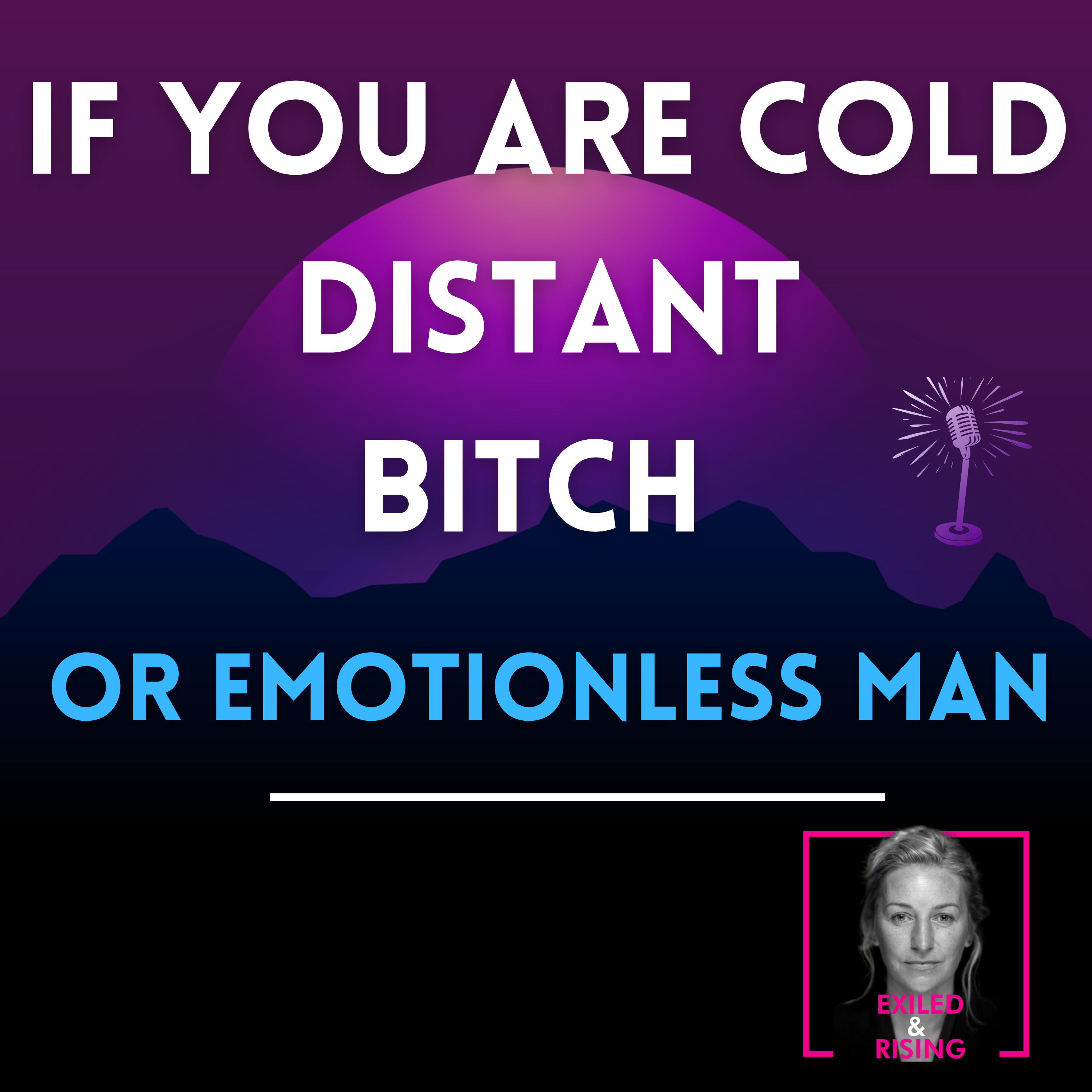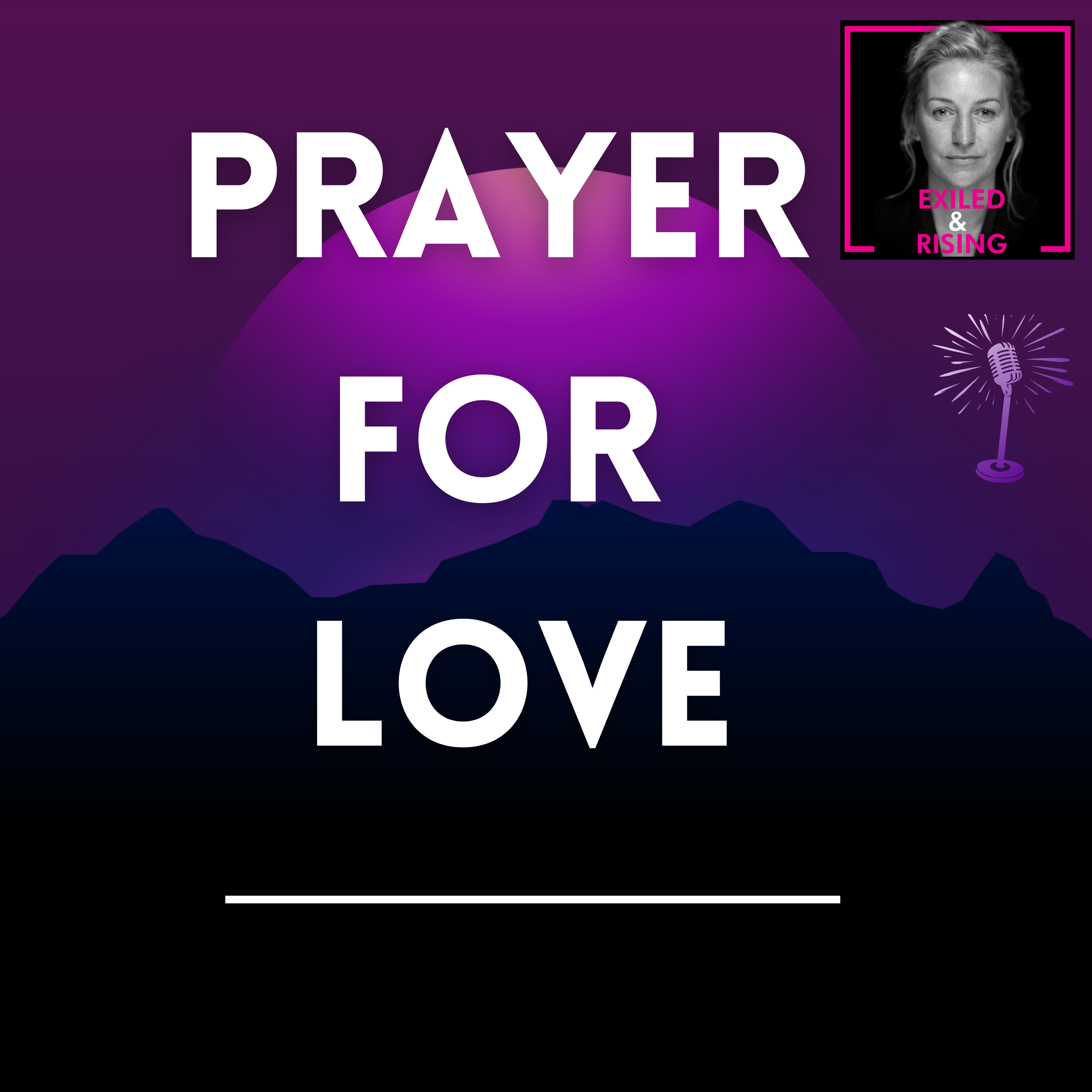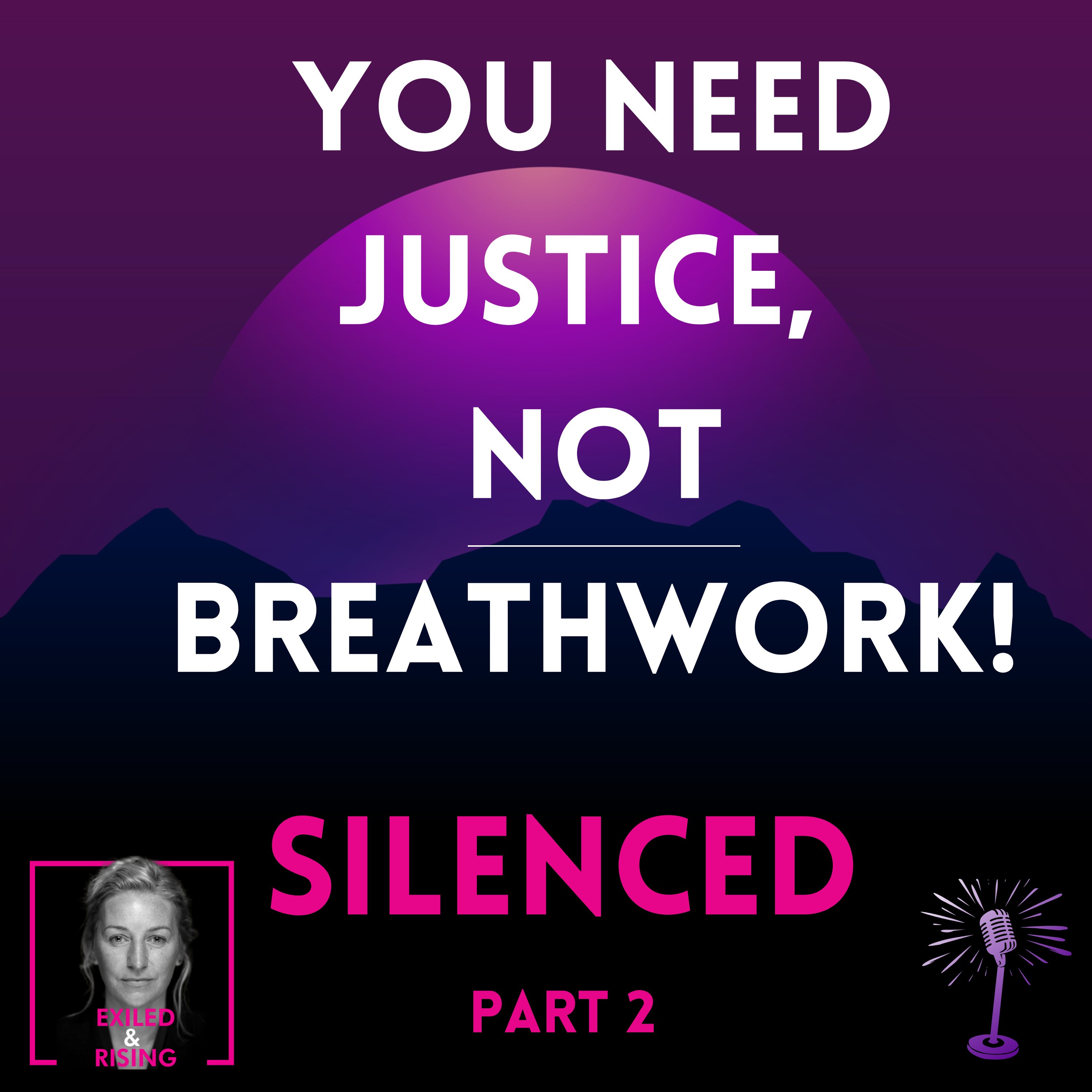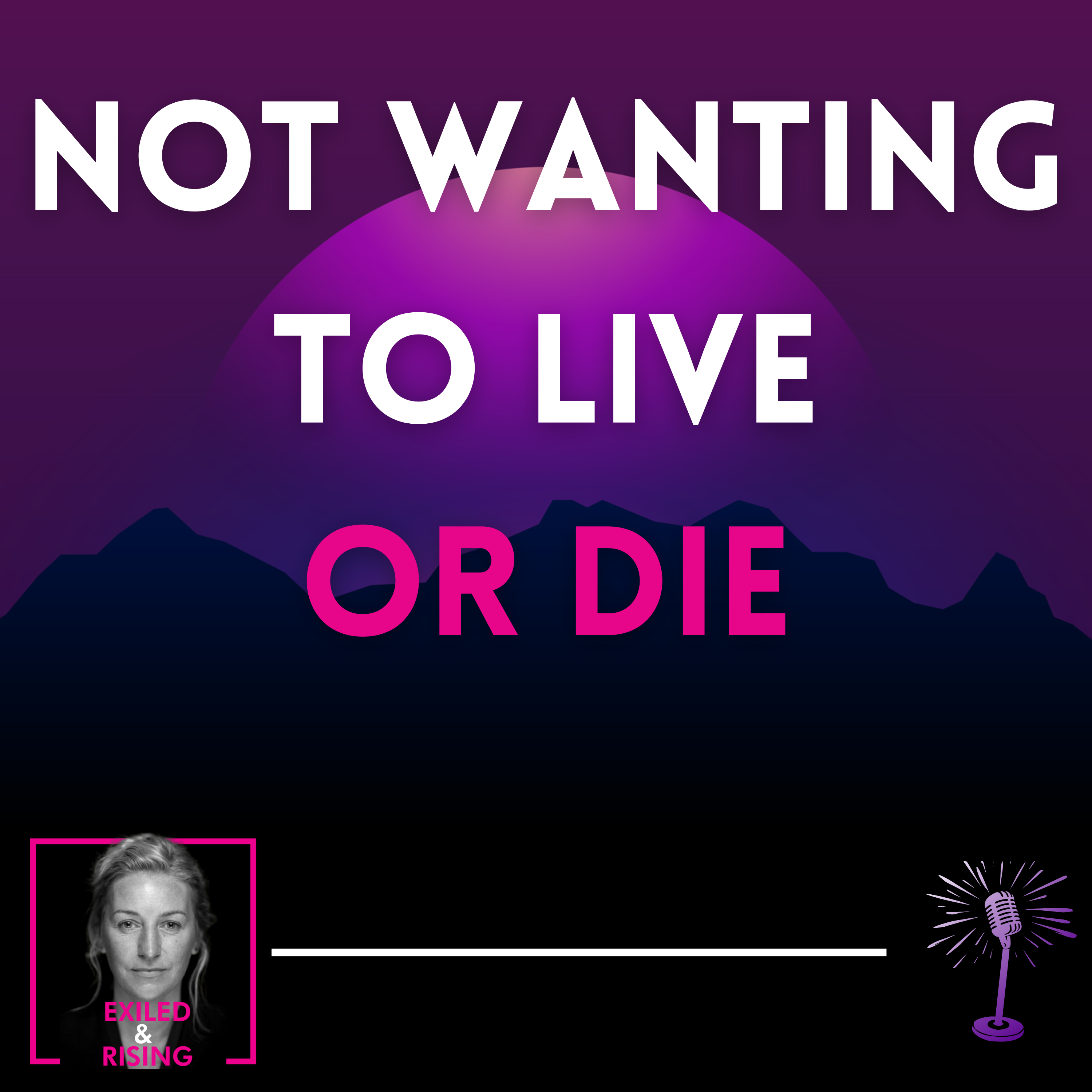Show Notes
Have you ever been called a “cold, distant bitch”? Or an emotionless prick?
In this episode, Ana Mael reveals the untold story behind these labels and explores how what the world sees as "cold" is actually profound emotional intelligence. Being labeled “cold” is not a weakness—it’s a survival mechanism. This episode is for anyone who has been misunderstood or marginalized for simply trying to survive in a world that doesn’t always see your humanity.
Podcast highlights from Ana:
"I honor that person. I honor you. Because I know how the ‘bitchiness’ was born. I know why."
Why it's impactful: This directly speaks to how trauma survivors are often unfairly labeled. It also shows that Ana’s approach is non-judgmental and deeply compassionate. She emphasizes that emotional defense mechanisms should be respected, not condemned.
"You are not cold, you are a diamond. You are heat under pressure."
Why it's impactful: This quote affirms the strength and beauty that arises from enduring hardship. It reframes the common narrative that trauma breaks people, instead suggesting that it can forge something powerful, just like diamonds are created under intense pressure.
"You don’t have to prove your warmth. You don’t have to. You don’t have to prove it, because someone who knows what it means to go and live through complex trauma will see you."
Why it's impactful: This serves as a powerful reminder to people who feel pressured to perform emotional labor to be "warm" or "likeable" despite their trauma. It underscores that those who have experienced similar pain will understand and validate them without needing to prove themselves.
"You were not cold and you are not cold. You were very calculated in your survival."
Why it's impactful: This redefines the narrative about emotional distance as a survival strategy. Ana emphasizes that emotional numbness or perceived coldness is not a flaw, but a purposeful and intelligent response to the threat of harm.
"When I see someone with a flat, rigid face, arrogance, almost unpleasant, angry, shielded, I see armor. I don’t see distance. I see depth."
-
Why it's impactful: This shifts the perspective on people who are perceived as cold or difficult. It invites listeners to see beyond the external appearance and recognize the layers of trauma, resilience, and survival beneath the surface.
Links:
New. Micro Lesson by Ana : https://exiledandrising.mykajabi.com/signup
Get the Book: The Trauma We Don't Talk About – Book , Ana Mael’s bestselling memoir for survivors, therapists, and seekers of truth : https://amzn.to/41SjKKL
Next Book Club cohort sign ups: https://exiledandrising.mykajabi.com/opt-in
❤️ Please Donate
This podcast is independently produced. No studio. No production team. Just a mission.
Donate here
Exiled & Rising – Premium Podcast Membership
Years of unlearning in one place.
Join here
Somatic Trauma Recovery Center
Learn more about Ana’s trauma healing practice, somatic tools, and programs.
Visit the center
Impactful Takeaways:
The Coldness You Feel Is Protection, Not Emptiness
Ana dives into how people who have experienced trauma—especially marginalized communities—develop emotional armor. This armor, often perceived as coldness or emotional distance, is actually a survival mechanism. It’s a brilliant and necessary shield that keeps them safe.
The Unseen Strength
Being called "strong" is often a misused label that leaves no room for vulnerability, rest, or support. Ana redefines strength, showing that true resilience comes from acknowledging the pain and the need for healing.
The Impact of Being Marginalized
Whether due to race, ethnicity, gender, or beliefs, Ana connects how marginalization leads to emotional suppression, creating an identity that is guarded or “cold.” This episode gives voice to those who are silenced, showing that their “coldness” is an act of self-preservation, not a flaw.
Trauma Justice and Advocacy
Ana teaches us that healing cannot occur without justice. Her advocacy work centers around dignity-based healing, arguing that the marginalized must reclaim their voices and emotional depth. As a genocide survivor, Ana brings trauma justice to the forefront, emphasizing that healing requires both internal and external recognition of pain and suffering.
Reclaiming Your Identity
Ana acknowledges how trauma survivors struggle with identity fragmentation when the world refuses to see them or their trauma. She highlights how survivors, particularly from marginalized communities, may hide their true selves out of survival. This suppression affects them emotionally and physically.
Somatic Healing
Ana’s somatic approach to trauma recovery brings the body into the healing process. This episode emphasizes how emotional and physical disconnection from others is often a result of suppressed trauma and how somatic work helps release these emotional burdens from the body.
Ana Mael’s Unique Approach to Trauma Healing:
Ana Mael offers a trauma-informed, justice-centered approach to healing. As a somatic therapist and genocide survivor, Ana’s unique insights stem from lived experience. She doesn’t just teach healing in the traditional sense; she advocates for truth, accountability, and dignity as core components of trauma recovery.
Her work speaks to marginalized communities—those who have been forced to suppress their emotions and voices in the face of violence and oppression. She helps them reconnect with their authenticity and emotional sovereignty. Ana challenges harmful practices that disregard the systemic nature of trauma and promotes trauma justice as the only true path to healing.
By weaving in somatic techniques, Ana empowers individuals to release the weight of their past and move toward personal empowerment.
About Ana Mael:
Ana Mael is a genocide survivor, somatic therapist, and author of The Trauma We Don’t Talk About. She is the founder of the Somatic Trauma Recovery Center and has dedicated her career to helping survivors reclaim their identity, dignity, and self-trust.
With decades of lived experience, Ana offers a unique, unapologetic approach to healing that combines trauma justice, somatic therapy, and spiritual integrity. She advocates for vulnerability, accountability, and collective healing to dismantle the systems that perpetuate oppression and harm.
Ana’s work provides a critical lens into the trauma of marginalized communities and offers a roadmap for healing that is both deeply personal and collectively transformative.
Follow, Subscribe, Share, and Join the Movement:
If you feel this episode spoke to you, share it with those who need to hear it. Together, let’s break the silence, reclaim our voices, and heal from the wounds of oppression.



